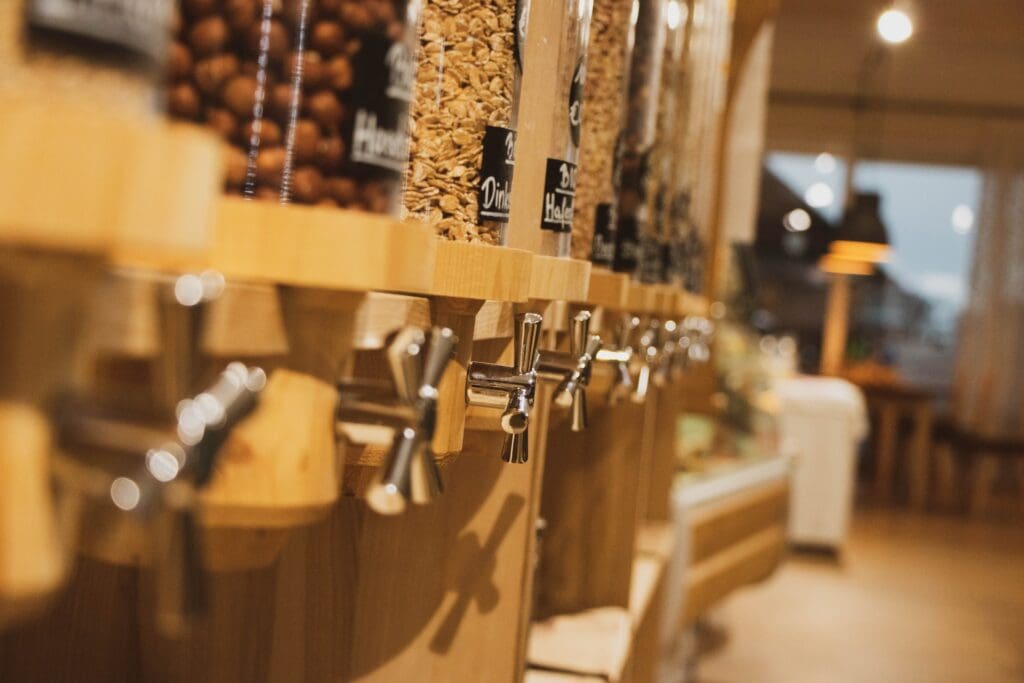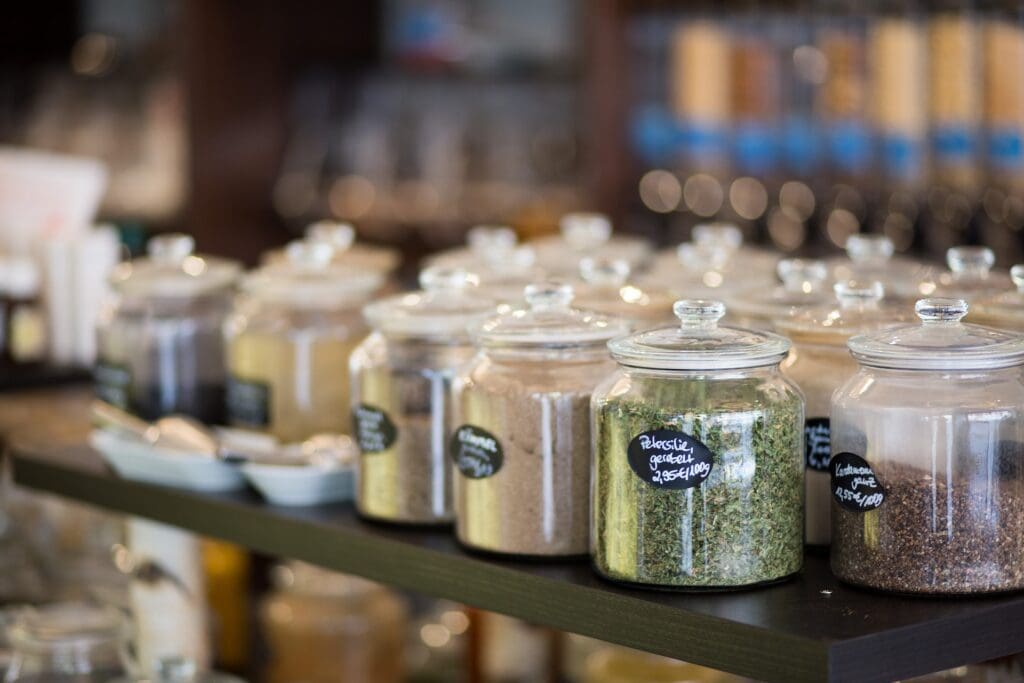Exploring Zero Waste Living: Your First Steps Toward Sustainability
Ah, my fellow Earth dwellers.
How many times have you guiltily thought about the trash piling up around you? As a custodian of this shared home, I did. And you know what I found? We do not have to let the waste pile up. There is another alternative, which is zero-waste living.
Imagine this:
Our daily habits, tweaked, just a little. Coffee cups? Reusable. Grocery bags? Brought from home. Packaging waste? Reduced. Tag along with me as we explore easy steps toward a more eco-friendly lifestyle!
Ready? Let’s do this.

How can I get started living a zero waste lifestyle?
What is a zero waste lifestyle?
A zero waste lifestyle is an approach to living that aims to minimize the amount of waste we produce. It involves making conscious choices to reduce, reuse, and recycle in order to send as little as possible to landfill.
The goal is to create a circular economy where resources are used efficiently, minimizing environmental impacts.
Why should you consider living zero waste?
Living zero waste has numerous benefits, both for the environment and for yourself. By reducing your waste output, you can:
- Conserve natural resources
- Reduce pollution and greenhouse gas emissions
- Save money by being more mindful of consumption
- Support local communities and businesses
- Promote a healthier lifestyle by avoiding harmful chemicals
Getting started on your zero waste journey
Now that you understand the concept and benefits of living a zero waste lifestyle, let’s dive into some practical tips to help you get started:
1. Assess your current waste
Take a look at your current waste habits. Conduct a waste audit by examining the items you throw away and identifying areas where you can make changes. Are there specific items you consistently dispose of? Can they be replaced with more sustainable alternatives?
2. Reduce your consumption
One of the key principles of zero waste living is reducing your overall consumption. Before making a purchase, ask yourself if you really need it or if there’s an alternative solution that produces less waste. Be mindful of packaging and opt for package-free or bulk options whenever possible.
3. Embrace the 5 R’s
To effectively reduce waste, follow the 5 R’s: Refuse, Reduce, Reuse, Recycle, and Rot. Refuse single-use items, reduce your waste by using less, reuse items instead of buying new, recycle properly, and compost organic waste to minimize landfill contributions.
4. Adopt sustainable shopping habits
Support local and sustainable businesses by shopping at farmers markets and bulk stores. Bring your own reusable bags, containers, and water bottles to avoid unnecessary packaging. Consider buying second-hand items to give them a new life and reduce waste.
5. DIY and make conscious choices
Instead of buying everything new, try DIY projects to create your own cleaning products, beauty items, and even clothes. Conscious choices like using cloth napkins instead of disposable ones or opting for digital receipts can also make a difference.
Sources:
– Zero Waste International Alliance. (2021). What is Zero Waste? Retrieved from https://zwia.org/zero-waste/
– Zero Waste Scotland. (n.d.). What is Zero Waste? Retrieved from https://www.zerowastescotland.org.uk/what-zero-waste

A Beginner’s Guide To Zero Waste Living
Step 1: The Journey Begins With an Assessment
Ever wondered what your trash can says about you?
Have you ever tried analyzing the kind of things you throw away and how often? Start with a basic waste assessment. This will provide an understanding of what composes your waste and serve as a baseline for your progress.
Tips for an Effective Waste Audit
- Choose a regular week for the audit, not during any special events or holidays.
- Document your findings diligently. It could be as basic as a scribble in a notebook or a high-tech spreadsheet.
Step 2: Reduction Is the New Black
Once you understand your waste, the next step is to reduce. The key to successful zero waste journey is all about reduction rather than elimination. It may be tempting to throw everything out and start afresh but remember that the idea is to minimize waste, right?
Easy Reduction Techniques
- Think before you buy. Do you really need it?
- Opt for experiences rather than material gifts.
Step 3: The All-Encompassing 5 R’s
The crux of zero waste living is encompassed in the 5 R’s: Refuse, Reduce, Reuse, Recycle, and Rot. These principles form the guiding framework and are crucial to achieve balance in this lifestyle.
Step 4: Revolutionizing Shopping Habits
We all love shopping but did you know that much of your waste can come from the manner in which you shop? A significant game-changer in your zero waste journey would be adapting your shopping habits.
Smart Shopping Tips
- Buy in bulk to reduce packaging waste.
- Support local farms and businesses.
Step 5: Embrace the DIY Culture
Ever made your own toothpaste or conditioner? Not only can you control what goes into them but also significantly cut down on plastic packaging.

A Green Twist on Grocery Shopping
Zero Waste Grocery Shopping: A Myth or a Reality?
Is it even possible to go grocery shopping without leaving with a mountain of plastic packaging and unnecessary waste? The answer is a resounding, yes! If whole world can operate paperless with digital transformation, can’t we, the global citizens, manage paperless groceries?
Start Small – Opt for Loose Produce
Think about it. Do apples, oranges, or bananas really need their own plastic bag? Quite the opposite. Mother Nature kindly provided them with their own natural packaging! Choosing loose fruits and vegetables is an easy and essential starting point for zero waste grocery shopping.1
BYOB – Bring Your Own Bag
Remember this mantra, “Every little helps”. Bringing your own reusable grocery bags to the supermarket cuts down on the number of plastic bags making a one-way trip to your home. If you’ve forgotten to bring your own bags, don’t sweat it. Opt for paper bags, these can be easily composted in your garden.2
Zero Waste Grocery Shopping Tools
Necessity is the Mother of All Invention: The Reusable Produce Bags
These lightweight, mesh bags are a great alternative to the traditional single-use plastic produce bags. Pop your loose fruits and veg into your reusable produce bags to keep your groceries organised and minimise unnecessary waste.3
Bring Your Own container (BYOC) Policy
Feel like buying some delicious refried beans or your favourite yogurt from the bulk section? Don’t forget to bring along your own container from home. Reusing containers saves money, cuts down on plastic usage, and reduces waste.4
| Steps | Actions |
|---|---|
| Start Small | Choose loose fruits and veggies. |
| Tool Up | Invest in reusable produce bags and jars. |
| Container Policy | Always bring your own container for bulk buy. |

Embracing Green Alternatives: Ecologically Sound Choices for Your Home
Your Kitchen: The Heart of the Household
Here lies the heart of every home: the kitchen. But how can you make it healthier for the planet?
The Conscious Consumer’s Shopping Bag
Ditch those plastic grocery bags – we’ve all got a drawer full of them – and opt for heavy-duty, eco-friendly carry-alls. They’re durable, fashionable, and kinder to our planet!1
Hydration Station: A Better Bottle
Forget about those mountains of plastic bottles. Opt for a trendy stainless steel or glass water bottle. You’ll not only look stylish but you’ll be making an eco-friendly decision.
Fresh Food? Say Yes to Less Waste.
Tired of throwing away rolls of plastic cling wrap? Try cloth or beeswax wraps as an eco-friendly replacement. Similarly, silicone or stainless steel containers can store your leftovers while reducing waste.
Reducing Waste in the Dining Room
Straw Wars: An Ethical Alternative
Let’s take out those plastic straws from our lives. Bamboo or stainless steel straws are chic, reusable and quintessential for the eco-conscious individual.5
This or That: The Napkin Edition
Why not replace the paper napkins that we use and toss by the dozens with cloth napkins? They’re more elegant, washable and certainly a greener option.
Bathroom: The Overlooked Corner
Eco-friendly Femcare
Time to kick those non-biodegradable tampons and pads to the curb. There’s a world of compostable and reusable femcare products out there, waiting to be discovered and embraced.8
Soap that Saves
Bar soap or refillable liquid soap is every zero-waste advocate’s dream. With less packaging and more product, it’s a win-win for you and the environment.9
References
- Reusable shopping bags. (2020). Environmental Protection Agency. https://www.epa.gov
- Eco-friendly water bottles. (2021). National Geographic. https://www.nationalgeographic.com
- Beeswax wraps. (2019). The Guardian. https://www.theguardian.com
- Stainless steel containers. (2020). The New York Times. https://www.nytimes.com
- Eco-friendly straws. (2021). EcoWatch. https://www.ecowatch.com
- Cloth napkins vs Paper napkins. (2019). Fast Company. https://www.fastcompany.com
- Compostable femcare. (2021). Bustle. https://www.bustle.com
- Bar soaps. (2020). Forbes. https://www.forbes.com
Understanding the Achievability and Rewards of a Zero Waste Lifestyle
Having delved into the concept and perks of adopting a zero waste lifestyle, it’s evident that this undertaking is not only feasible but also extraordinarily gratifying.
Applying the Principles of Zero Waste for a Greener Planet
By espousing the tenets of waste reduction, item reuse, proper recycling, and supporting sustainable shopping practices, we can dramatically lessen our environmental burden and contribute to a more robust Earth.
Effective Strategies for Adopting a Zero Waste Lifestyle
Our personal investigation and research underscore the importance of starting with a humble waste assessment, focusing on waste reduction, and adhering to the 5R’s (Reduce, Reuse, Recycle, Repair, and Refuse). Making green conscious choices, such as carrying our personal containers for shopping and choosing reusable alternatives, can make a significant difference.
The Deeper Meaning and Impact of a Zero Waste Lifestyle
Choosing zero waste lifestyle is far from being a mere trend—it’s an entire shift in mindset. It’s about being conscious of our consumption habits, making deliberate choices, and exploring creative solutions for waste reduction. As we make these shifts, we’re not only aiding our planet but also saving money, nurturing local commerce, and fostering a healthier living standard.
The Collective Effort in Building a Sustainable Future
So, why not kickstart your journey towards a zero waste lifestyle today? By embracing this lifestyle, you can engender a positive influence and motivate others to follow suit. Collectively, we hold the power to create a more sustainable tomorrow for generations yet to come.






